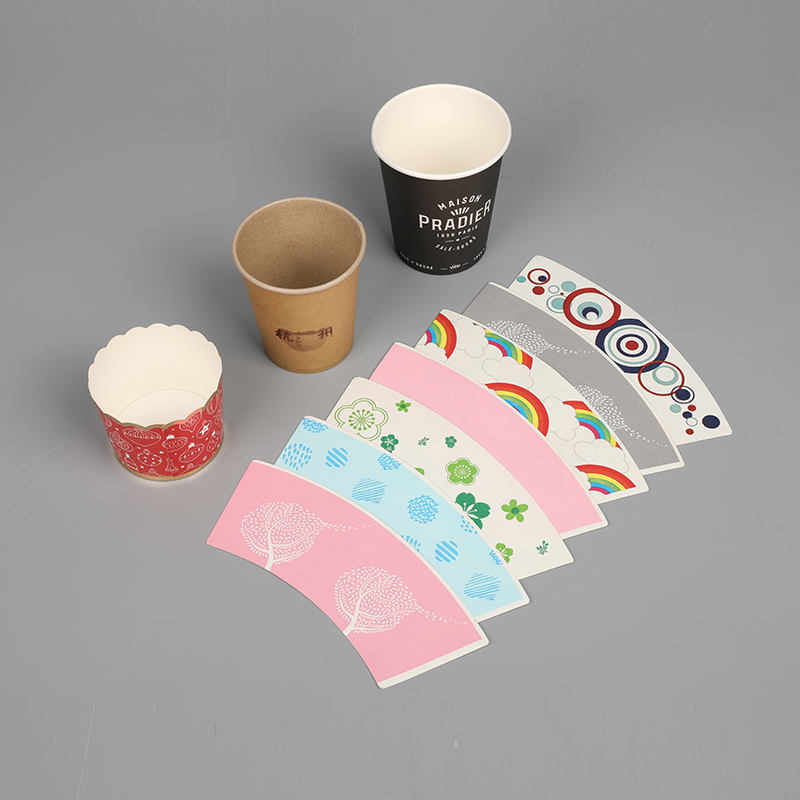Understanding Water-Based Barrier Coated Paper
Water-based barrier coated paper is a type of paper that has been treated with a water-based coating to enhance its resistance to moisture, oils, and other liquids. Unlike traditional coatings, which often rely on solvents and chemicals that can harm the environment, water-based coatings use water as the primary solvent. This makes them less toxic and more eco-friendly, aligning with the growing demand for sustainable packaging solutions.
The barrier coating on the paper provides a protective layer that prevents the ingress of moisture, oil, and other contaminants, making it an excellent choice for food and beverage packaging. This type of paper is also highly customizable, with the ability to be printed or treated with additional coatings for various applications.
Environmental Impact of Water-Based Barrier Coated Paper
One of the main reasons why water-based barrier coated paper is gaining popularity is its positive environmental impact. The shift toward sustainable packaging is driven by the global need to reduce plastic waste and minimize the environmental footprint of packaging materials. Water-based barrier coated paper offers several environmental advantages:
Reduced Plastic Use: By replacing plastic-based packaging with water-based coated paper, manufacturers can significantly reduce their reliance on petroleum-based plastics, which take hundreds of years to decompose. This shift helps address the growing problem of plastic pollution in landfills and oceans.
Recyclability and Compostability: Water-based barrier coated paper is fully recyclable, unlike plastic-lined packaging, which often ends up in landfills due to the difficulty of separating the plastic lining during recycling. Additionally, many water-based coated papers are compostable, further enhancing their environmental benefits.

Lower Carbon Footprint: The production of water-based barrier coated paper generates fewer emissions compared to plastic and other synthetic materials. The use of water as the solvent reduces the need for harmful chemicals and solvents, leading to a cleaner production process and a lower overall carbon footprint.
Biodegradable Properties: Because water-based coatings do not contain harmful chemicals, the coated paper is biodegradable. This makes it a suitable alternative for single-use packaging applications, especially in industries where hygiene and product safety are paramount, such as food and medical packaging.
Applications of Water-Based Barrier Coated Paper
The versatility of water-based barrier coated paper makes it suitable for a wide range of applications across various industries:
Food Packaging: Water-based barrier coated paper is increasingly used in food packaging, especially for products that are prone to contamination from moisture and oil. Examples include sandwich wraps, takeout boxes, and grease-resistant paper used for baked goods.
Beverage Packaging: Beverage cartons and containers for liquids such as milk, juice, and even alcoholic beverages can benefit from the protective properties of water-based coatings. These coatings help maintain the integrity of the beverage while ensuring the packaging remains eco-friendly.
Cosmetic Packaging: As more consumers demand sustainable products, the cosmetics industry is turning to water-based barrier coated paper for packaging. This paper provides a sustainable alternative for packaging products like lotions, perfumes, and makeup, without compromising on aesthetic appeal.
Retail and E-Commerce: Water-based coated paper is also used in the packaging of retail products, especially in e-commerce shipments. As online shopping continues to rise, brands are opting for sustainable packaging options to meet consumer expectations and reduce their carbon footprint.


 English
English Español
Español عربى
عربى-1.jpg?imageView2/2/format/jp2)

 View More >>
View More >> View More >>
View More >>.jpg?imageView2/2/format/jp2) View More >>
View More >> View More >>
View More >>.png?imageView2/2/format/jp2) View More >>
View More >>.jpg?imageView2/2/format/jp2) View More >>
View More >> View More >>
View More >>.png?imageView2/2/format/jp2) View More >>
View More >> View More >>
View More >> View More >>
View More >>.jpg?imageView2/2/format/jp2) View More >>
View More >>



